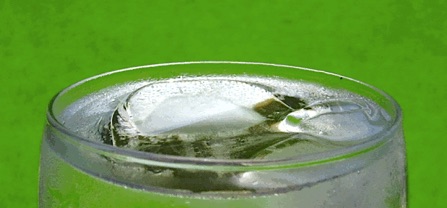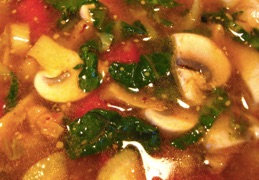

Article

Water, water, water...
We all know we need to drink water – but it seems that many of us lack the motivation to actually drink the right amount.
This may help...
Roles of water in the body
-
•used to break down foods in digestive tract
-
•keeps the digestive tract moving
-
•carries nutrients and oxygen to the cells
-
•protects liver and kidneys by carrying away wastes
-
•moistens tissues – e.g. mouth, eyes, lungs, nose
-
•helps lubricate joints
-
•helps regulate body temperature
-
•helps maintain the shape and volume of cells – so they work properly
Water and health
Water helps with weight loss!
Water-induced thermogenesis. Boschmann M, Steiniger J, Hille U, Tank J, Adams F, Sharma AM, Klaus S, Luft FC, Jordan J J Clin Endocrinol Metab. 2003 Dec;88(12):6015-9.
http://www.ncbi.nlm.nih.gov/pubmed/14671205
Drinking water is associated with weight loss in overweight dieting women independent of diet and activity. Stookey JD, Constant F, Popkin BM, Gardner CD. Obesity (Silver Spring). 2008 Nov;16(11):2481-8. Epub 2008 Sep 11.
http://www.ncbi.nlm.nih.gov/pubmed/18787524
Lack of water increases cholesterol levels
Dehydration during fasting increases serum lipids and lipoproteins. Campbell NR, Wickert W, Magner P, Shumak SL. Clin Invest Med. 1994 Dec;17(6):570-6.
http://www.ncbi.nlm.nih.gov/pubmed/7895421
Symptoms of dehydration
Adapted from Mayo Clinic article.
http://www.mayoclinic.com/health/dehydration/ds00561/dsection=symptoms
-
•dry, sticky mouth
-
•sleepiness, tiredness
-
•thirst
-
•decreased urine output
-
•dry skin
-
•headache
-
•constipation
-
•dizziness, lightheadedness
How much water?
The most common recommendation:
about 2 litres per day
This amount includes non-creamy soups, herbal teas, mineral water as well as plain water.
Some people may need more or less water depending on their body metabolism, exercise, exposure to heat, etc.
Note: use sea salt (not table salt) liberally, to help with uptake and utilization of water throughout the body.
Getting the best water
Aim for drinking the best water from the best containers.
Sources of water in order of preference:
-
•spring water above 3000 ft
-
•spring water below 3000 ft
-
•reverse osmosis or distilled filtered with a high quality filter
-
•"brita" type filter system
-
•tap water without fluoride
-
•tap water with fluoride
-
•contaminated water
(Poor quality water is better than no water in an emergency!)
Containers in order of preference:
-
•glass
-
•ceramic (good quality, lead-free)
-
•stainless steel (good quality)
-
•BPA-free plastic
-
•hard plastics
-
•other plastic
Some other things to consider...
Bottled water
Bottled water value depends on the quality of the water put in the bottle AND what the bottle is made of.
Fluoridated water
The use of fluoride in water is a controversial issue and WAY beyond the scope of this article. More and more communities in North America are opting out of fluoridating after evaluating the evidence regarding safety vs benefit. For more info check out:
Ionized/pH water
This form of Alkaline water seems to have beneficial health properties. However I have not seen enough published long-term evidence – based on human studies – to definitively make recommendations one way or the other at this time.
Home | Holistic Nutrition | Talks and workshops | Contact | Articles and recipes

© 2020 Paul Demeda | 2869 Bloor Street West | Toronto, ON M8X 1B3, Canada